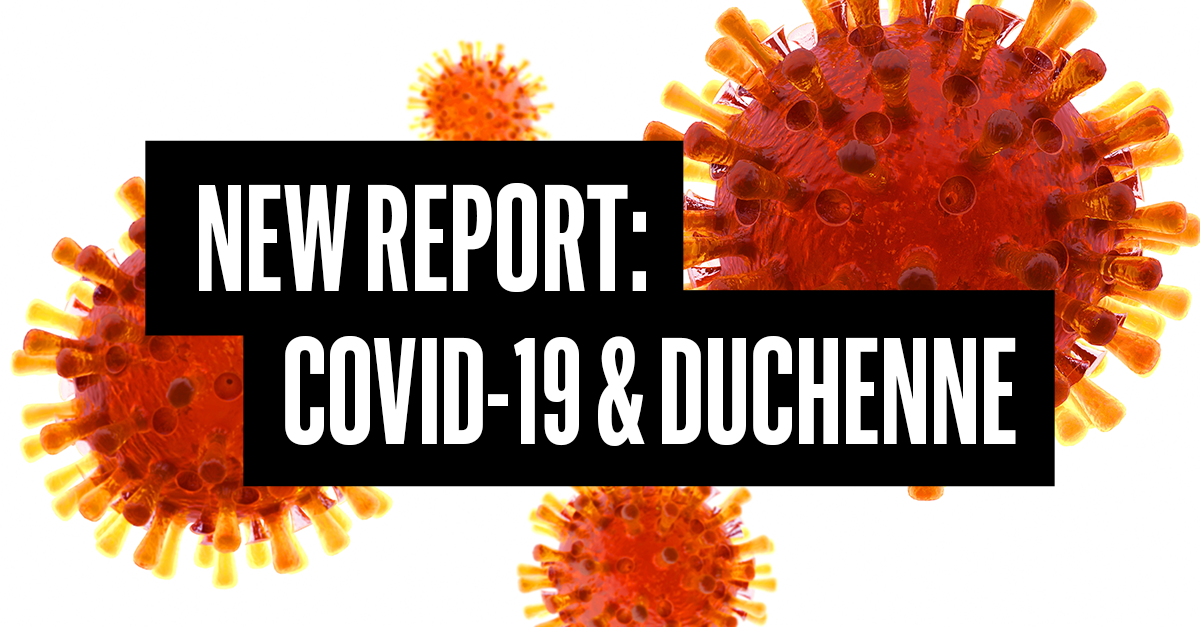
NEW REPORT: COVID-19 & Duchenne/Becker Muscular Dystrophy
Since 2014, PPMD has been growing its network of Certified Duchenne Care Centers (CDCCs) with the goal of standardizing and optimizing patient care throughout the US and making excellent Duchenne care accessible regardless of where you live. Since our first certification more than five years ago, the network has grown to include nearly 30 sites, including two international sites and two adult certified centers. This network has brought together hundreds of Duchenne clinicians with a common goal of providing excellent care.
Now, that spirit of collaboration is more evident than ever, with the publication of a consensus statement for the care of persons with Duchenne and Becker muscular dystrophy during the COVID-19 pandemic. Read the full-length publication here.
The publication, accepted to Muscle & Nerve, outlines consensus recommendations if a person with Duchenne or Becker were to be diagnosed with or suspected of infection with COVID-19, and guides physicians and caregivers on best practices for management and treatment.
These best practices include:
- Thorough assessment of symptoms, including fever, cough, fatigue, shortness of breath, sore throat, headache, diarrhea, and reduced taste and smell sensations, including severe symptoms such as pneumonia, acute respiratory distress syndrome, cytokine storm, and myocardial injury
- Importance of following local, state, and federal guidelines
- Implementation of strict social distancing practices
- Use of telehealth and home-based diagnostic testing when available and appropriate
- Continuation of current treatments, including steroids and cardiac medications as prescribed, unless directed by your physician
- Use of stress dosing if the person with Duchenne becomes ill, with close communication and guidance from the neuromuscular specialist on dosing
- Continuation of exon skipping therapies, with caution around home nursing services and use of appropriate precautions to minimize risk of exposure to COVID-19
- Continued use of cough assist device and other supportive ventilatory support devices, with consideration given to changing masks for full-face masks or cuffed tracheostomies
- If evaluation in an emergency department becomes necessary, bring all ventilatory support devices with you to ensure continued use and availability of devices
- As use of hydroxychloroquine is associated with significant and potentially harmful adverse effects, it should be avoided in people with Duchenne
- Consideration of tele-rehabilitation services if available and appropriate, including continuation of home-based therapy routines including stretching, use of splints, and physical activity
- Use of telehealth to address and manage new or ongoing mental health and behavioral concerns
- Close communication and thoughtful consideration about clinical trial related visits and testing, with use of remote visits when possible in accordance with sponsor and institutional policies
While the ongoing COVID-19 pandemic continues to evolve and recommendations change, know that PPMD and our network of CDCC clinicians are here to support you and your family. Changes to best practices and new guidelines will be made widely available as they are developed and implemented, and we will get through this together.



 by: Parent Project Muscular Dystrophy
by: Parent Project Muscular Dystrophy

